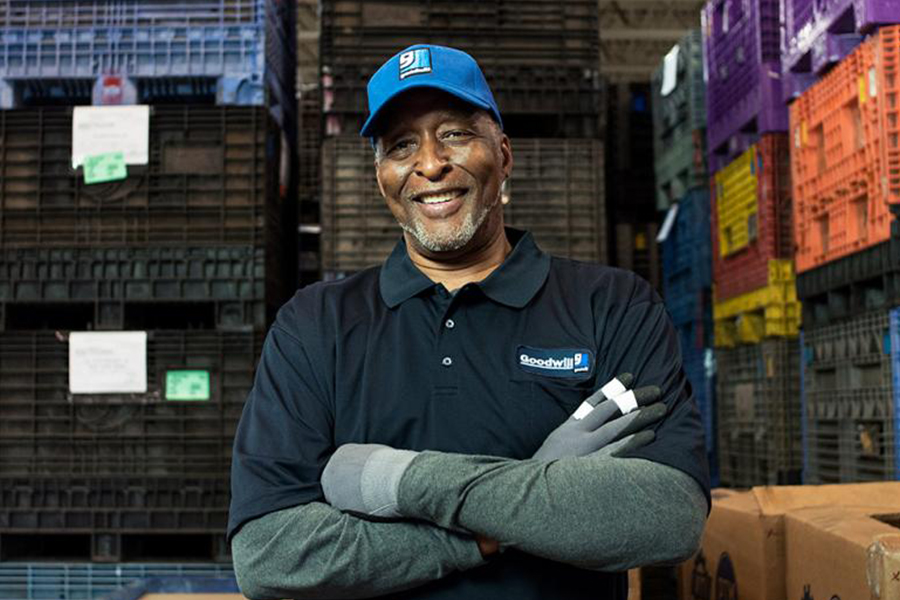NRF Member Spotlight: Goodwill Industries International
As consumers demand more sustainability from the brands they support, many retailers are investing in innovation and environmentally friendly products. Goodwill Industries International has been investing in sustainability for decades, recognizing the valuable impact it has on the environment, society and the economy. The nonprofit organization collaborates with partners to provide digital skills training to help people start or rebuild their careers.
We connected with Brian Itzkowitz, chief member advancement officer at the nonprofit organization, to learn more about Goodwill’s initiatives.
In 2019, local Goodwill organizations diverted 4.6 billion pounds of usable goods from landfills. How do you hope to continue sustainability efforts in the future?
Goodwill is an environmental pioneer and social innovator in the “reduce, reuse, repurpose” practice. People have been donating to and shopping at Goodwill since 1902, long before “sustainability” became a popular term.
Through our business model of collecting and selling donated goods, Goodwill organizations help communities extend the life of and recover the value in usable items in environmentally sound ways. When people buy already-made clothing and other items from Goodwill stores, they save valuable natural resources, such as water and electricity, that are used to create new items.
“Goodwill organizations help communities extend the life of usable items in environmentally sound ways and prevent items from piling up in local landfills.”
Through Goodwill’s Dell Reconnect program, which began in 2004, Goodwill organizations have collectively diverted more than 500 million pounds of computers and computer equipment from landfills at more than 2,000 locations in the United States and Canada. The Dell Reconnect program provides sustainability jobs and trains people to sort these items for recycling, as well as ways for people to safely recycle their computer products.
How has consumer behavior changed when it comes to sustainability?
According to industry research, consumers are increasingly considering environmental impact issues in their purchasing decisions. We also see shifts in what consumers expect from apparel manufacturers, including end-of-use solutions. Many people are taking a critical look at their behaviors. There is more public awareness regarding the environment and people are looking for ways to live more eco-friendly lifestyles.
Goodwill offers sustainable solutions to both of these shifts. Donating to and shopping at Goodwill allows everyone to participate in the circular economy, which benefits business, society and the environment. In the future, Goodwill will continue to look for ways to be more sustainable in our operations. Some Goodwill organizations are investing in renewable energy, such as installing solar panels on their roofs or becoming LEED certified.
Goodwill has a long history of helping people overcome barriers to employment. What are some new initiatives to assist the many Americans who lost their jobs during the pandemic?
COVID-19 has accelerated changes in the workforce. Goodwill is helping people build essential digital skills, which help move people out of entry-level positions into better paying jobs. Collaborations with Coursera and technology companies are helping us provide access to and support to complete career credentials in Google IT Support and Python, with more to come.
In addition, Goodwill is helping people master technology tools to stay connected with colleagues in an office, as many people continue to work from home.
Source: NRF




